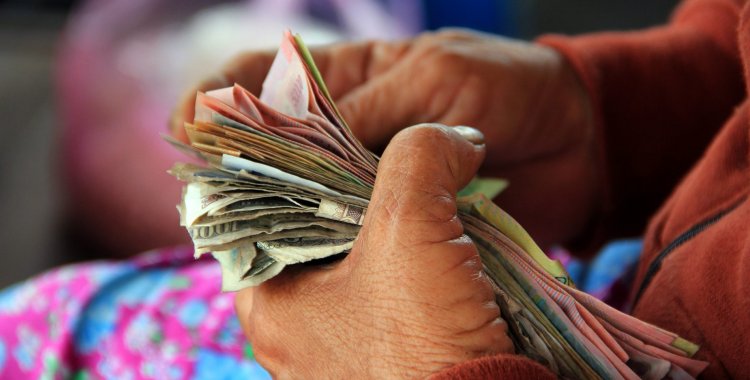They say that the shortage of currency on the market has boosted demand for the dollar, whose US$100 note is currently being bought between 70,000 and 72,000 kwanzas and sold between 75,000 kwanzas and 76,000 kwanzas, above the official exchange rate.
“Business is difficult, because previously the dollar was at an affordable price, but now the dollar is difficult, it no longer appears easily”, António da Silva, a 45-year-old “kinguila” told Lusa.
In business for 28 years, at the Mercado dos Kwanzas, in the municipality of Cazenga, in Luanda, the operator of this informal market said that the kwanza is appearing in large quantities, but quite devalued compared to the “rare” currencies.
“At the moment, the kwanza is appearing, but the dollar is really difficult, we have been in this situation for almost a month, because for some time we have been paying [for the $100 note] 50,000 kwanzas, but during this time the dollar has skyrocketed”, he stressed. .
With no arguments to justify the rise in the dollar and the fall in the kwanza, António da Silva also lamented the absence of customers and, therefore, of income to support family expenses.
“I've been here since morning and I still haven't gotten a single dollar and it's kind of complicated, I can't support the family, so far I can't understand why the dollar is shooting up like that, it's really difficult”, he noted.
Pedro Kiabanza, “kinguila” for 23 years in the well-known Mercado dos Kwanzas, also reported daily difficulties as a result of the shortage of foreign exchange, noting that the sale of telephone recharge cards has been an escape to obtain some money.
“All of us only have kwanzas, we sell [telephone] top-up and life is getting harder every time, since morning not a dollar, not even a euro, we are not exchanging”, he shot.
“We are not understanding what is going on, because before we exchanged money for those who traveled, now at this very moment, as travel is difficult, everything has also become difficult”, he added.
This 53-year-old "kinguila" also confirmed the increase in demand for foreign exchange, having proved to be "powerless" to respond to demand and lamenting the depreciation of the kwanza.
The kwanza "loosing value, it is deterioration of the country, because it weighs more in the pockets of the citizens", he pointed out, commenting that life "is even more difficult" to support and educate the seven children.
Currently, according to Lubusakiba Sebastião, who has been in the business for 23 years, the price of buying and selling currency on the informal market is dictated by the person holding the value.
“For those who have [currencies] they will give the price now, they are looking more for the dollar in relation to the kwanza, when there is a lot of kwanza on the market the dollar always tends to rise”, he noted.
“Our resource now is just selling balance [phone top-ups], because there are occasions when you can go three days without [buying or selling] any notes and the solution is to also sell a ‘chip’ [SIM card]”, he said.
Gomes Paulo also reported the difficulties that the “Kinguila” are currently experiencing, given the scarcity of foreign exchange, noting that the current scenario has been dragging on since the beginning of May and “every day, the [$100] bill is going up ”.
Banco Fomento Angola (BFA) considered on Monday that the kwanza will appreciate in the medium term, despite the fall of almost 10 percent against the dollar last week, accumulating losses of 23.75 percent since the beginning of the year.
"Last week was marked by the continued depreciation of the kwanza against the dollar and against the euro", write the BFA analysts in their weekly commentary on market developments, pointing to falls of 9.87 percent against the dollar and 9. 95 percent against the euro.
Some economists interviewed by Lusa point to the reduction in the share of currency supply on the market by the Angolan Treasury, in the first five months of 2023, to meet debt service, as one of the factors for the depreciation of the kwanza.







